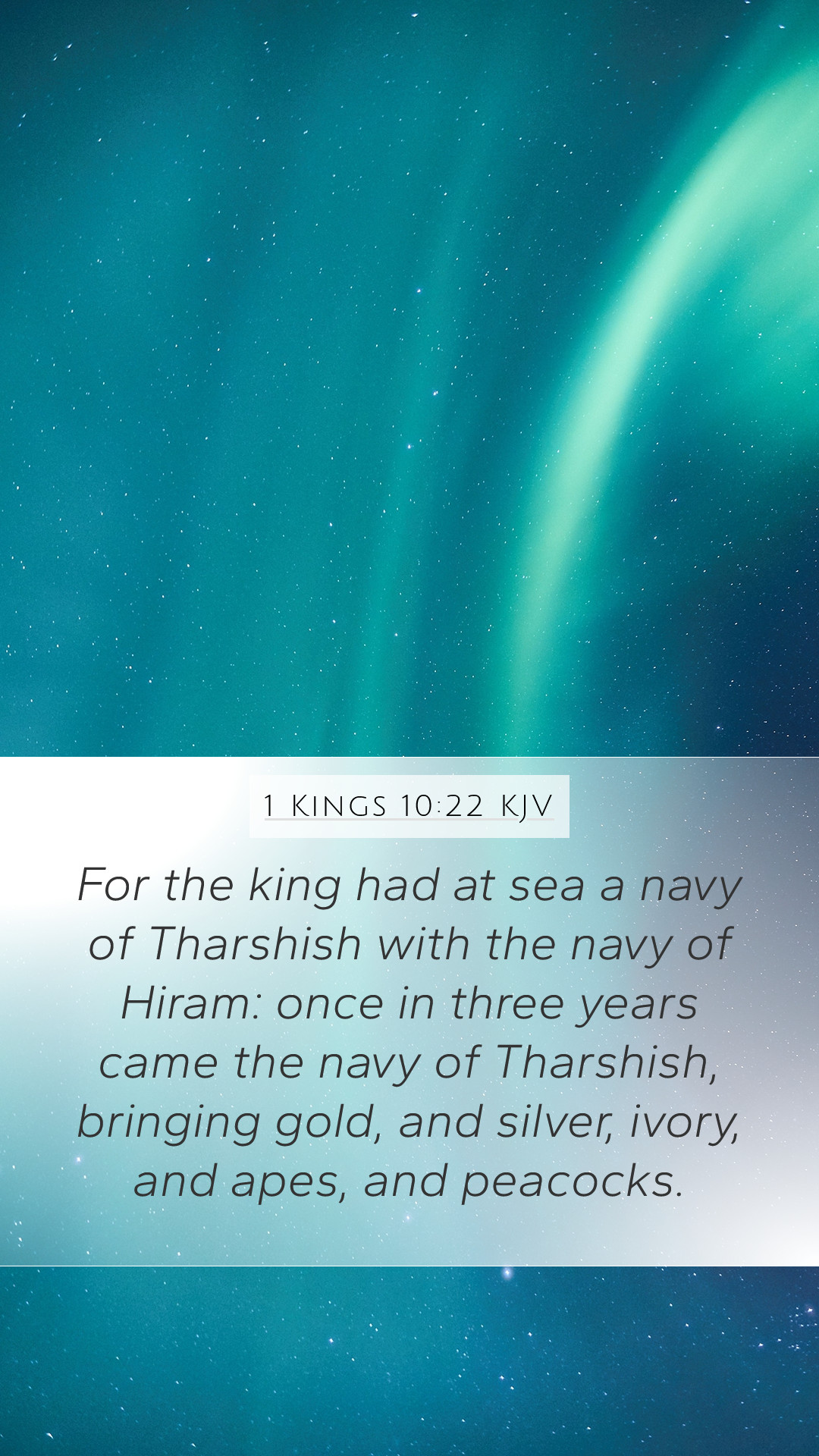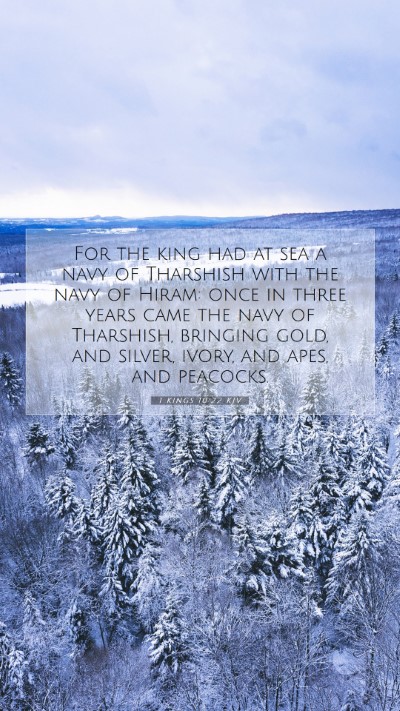Bible Verse Meaning: 1 Kings 10:22
Verse Reference: 1 Kings 10:22 states, "For the king had at sea a navy of Tharshish, to go to Ophir for gold: with the navy of Tharshish once in three years they came, bringing gold, and silver, ivory, and apes, and peacocks."
Summary of Biblical Context
The passage occurs within the narrative of Solomon’s reign, highlighting his prosperity and the grandeur of his kingdom. Solomon’s dealings with far-off lands exemplify the flourishing of Israel during his rule, portraying a period of peace and luxurious abundance driven by trade.
Insights from Biblical Commentaries
-
Matthew Henry’s Commentary:
This commentary notes that Solomon’s fleet symbolizes his extensive trade and wealth. The mention of the annual voyages signifies a structured and wise economic initiative. Henry emphasizes God's blessing in this prosperity, suggesting that Solomon's successes are a direct result of divine favor.
-
Albert Barnes’ Notes:
Barnes explains that the Navy of Tharshish was likely associated with Tarshish, a place linked with wealth and luxury. The opulence of the goods brought back—gold, ivory, and exotic animals—reveals the extent of trade relations Solomon established. Barnes underscores that such wealth was pivotal for the Temple’s construction and other religious endeavors, signifying that earthly riches can serve divine purposes.
-
Adam Clarke’s Commentary:
Clarke elaborates on the geographical significance of Ophir, which is often highlighted in ancient texts as a remote place rich in resources. He discusses the periodic nature of the voyages, suggesting that this system not only demonstrates Solomon's organizational skills but also reflects the strategic importance of trade in his era. Clarke emphasizes the need for diligence and wisdom akin to Solomon’s in handling blessings.
Thematic Elements and Applications
This verse speaks to various themes within biblical scholarship and personal application:
- Prosperity and Wealth: The narrative illustrates God's intention in providing material wealth and resources, which should be utilized responsibly for His glory.
- Wisdom in Leadership: Solomon's ability to manage resources demonstrates leadership virtues that modern leaders can learn from, particularly the significance of wisdom in governance and commerce.
- Trade and Relationships: The extensive trade network underscores the importance of building connections and fostering relationships that can lead to shared benefits.
- Divine Provision: The blessing of prosperity as a divine provision emphasizes that all riches should be received gratefully and used for higher purposes.
Cross References
This verse connects to several other biblical passages that enrich understanding:
- 1 Kings 10:1-2 - The visit of the Queen of Sheba highlights the fame of Solomon's wealth and wisdom.
- 2 Chronicles 9:21 - Provides a parallel account of Solomon's wealth and trade, emphasizing how vast his resources were.
- Job 22:24 - Further examination into the richness that can be acquired through righteous living and wisdom.
Conclusion
In examining 1 Kings 10:22, we uncover essential Bible verse meanings regarding prosperity, wisdom in leadership, and the divine blessings upon those who seek to serve God. The commentary insights from noted scholars provide a deep understanding of the verse, enriching our Bible study insights and enhancing our overall comprehension of Scriptural teachings. Engaging with this scripture can stimulate discussions in Bible study groups, offering a rich ground for application to contemporary life and leadership.


